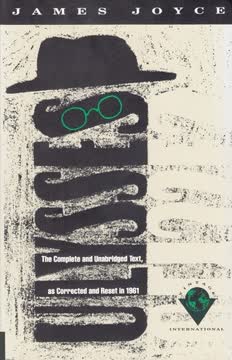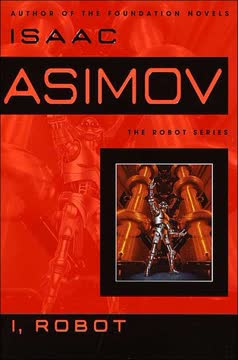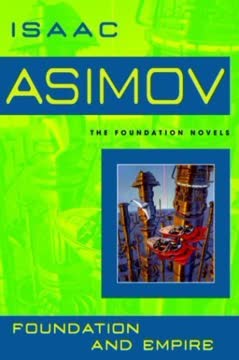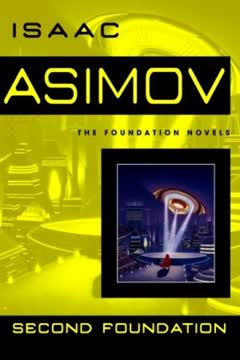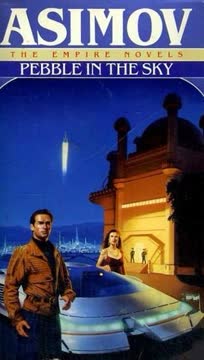Key Takeaways
1. Asimov's journey from immigrant child to prolific writer
"I am pretty temperamental about sounding untemperamental. I've thrown many a fit at any editorial suggestion that I'm the kind of author who throws fits."
Humble beginnings: Isaac Asimov's life story is a testament to the American dream. Born in Russia in 1920, he immigrated to the United States at the age of three. Growing up in Brooklyn, Asimov developed a voracious appetite for reading and learning, which laid the foundation for his future career as a writer.
Rise to prominence: Despite facing challenges as an immigrant and working in his family's candy store, Asimov's talent and dedication to writing propelled him to success. He began writing science fiction stories in his teens and sold his first story at the age of 18. This early success marked the beginning of a prolific career that would span decades and encompass hundreds of books across various genres.
Key milestones in Asimov's early career:
- First published story: "Marooned Off Vesta" (1939)
- First novel: "Pebble in the Sky" (1950)
- Breakthrough story: "Nightfall" (1941)
2. The evolution of Asimov's science fiction and robot stories
"I am probably more famous for [the Three Laws of Robotics] than for anything else I have written, and they are quoted even outside the science-fiction world."
Foundation and Robots: Asimov's two most famous series, Foundation and the Robot stories, revolutionized science fiction. The Foundation series, which began as a series of short stories in the 1940s, explored the concept of psychohistory and the fate of a galactic empire. The Robot stories introduced the famous Three Laws of Robotics, which have become a cornerstone of science fiction and robotics discussions.
Innovative concepts: Asimov's work was characterized by its emphasis on ideas and logical problem-solving rather than action or adventure. He popularized concepts such as psychohistory, positronic brains, and the laws of robotics, which have had a lasting impact on both science fiction and real-world scientific discourse.
Key elements of Asimov's science fiction:
- Focus on scientific accuracy and plausibility
- Exploration of social and ethical implications of technology
- Use of logic and reason to solve problems in storytelling
3. Asimov's commitment to science education and rational thinking
"I believe that scientific knowledge has fractal properties, that no matter how much we learn, whatever is left, however small it may seem, is just as infinitely complex as the whole was to start with. That, I think, is the secret of the universe."
Popular science writing: In addition to his fiction, Asimov was a prolific writer of popular science books and articles. He believed strongly in the importance of scientific literacy and dedicated much of his career to explaining complex scientific concepts to the general public in an accessible and engaging manner.
Championing rationalism: Asimov was a vocal advocate for rational thinking and the scientific method. He frequently spoke out against pseudoscience, superstition, and religious fundamentalism, arguing that a scientific worldview was essential for addressing the challenges facing humanity.
Asimov's contributions to science education:
- Wrote over 300 popular science books
- Authored a monthly science column for Fantasy & Science Fiction magazine for over 30 years
- Participated in numerous lectures and public speaking engagements to promote scientific understanding
4. The challenges and rewards of being a versatile writer
"I suppose there are people who are so 'lucky' that they are not touched by phantoms and are not troubled by fleeting memory and know not nostalgia and care not for the ache of the past and are spared the feather-hit of the sweet, sweet pain of the lost, and I am sorry for them-for to weep over what is gone is to have had something prove worth the weeping."
Prolific output: Asimov's incredible productivity was a defining feature of his career. He wrote or edited over 500 books and countless articles across a wide range of subjects, including science fiction, popular science, history, and even humor. This versatility allowed him to reach a broad audience and establish himself as a leading public intellectual.
Balancing act: Maintaining such a high level of output while juggling multiple genres and subjects was not without its challenges. Asimov had to constantly balance his creative impulses with the demands of publishers, readers, and his own high standards. He developed strategies to overcome writer's block and maintain his productivity, such as working on multiple projects simultaneously.
Asimov's writing process:
- Wrote quickly and without extensive revision
- Used a conversational, accessible style
- Drew upon his vast knowledge to make connections across disciplines
5. Asimov's views on religion, humanism, and the role of science in society
"I am a humanist, which means, in part, that I have tried to behave decently without any expectation of rewards or punishments after I'm dead."
Secular humanism: Asimov was a committed atheist and secular humanist. He believed that human reason and scientific inquiry, rather than religious faith or supernatural beliefs, were the best tools for understanding the world and addressing societal problems.
Science and ethics: While Asimov championed the importance of scientific progress, he also grappled with the ethical implications of technological advancements. His writings often explored the potential consequences of scientific discoveries and the responsibilities of scientists to society.
Key aspects of Asimov's worldview:
- Rejection of supernatural explanations for natural phenomena
- Emphasis on human potential and responsibility
- Belief in the power of education and rational discourse to improve society
6. The impact of personal relationships and health on Asimov's work
"I love you too."
Family and friends: Despite his intense focus on writing and intellectual pursuits, Asimov valued his relationships with family and friends. His marriages, children, and friendships with fellow writers and scientists played significant roles in shaping his life and work.
Health challenges: In his later years, Asimov faced several health issues, including heart problems and, ultimately, HIV/AIDS contracted from a blood transfusion during surgery. These health challenges affected his work and outlook on life, but he continued to write and engage with his readers until the end.
Key personal influences on Asimov's life and work:
- Early support from his parents, especially his father's belief in his writing ability
- Friendships with other science fiction writers and editors, particularly John W. Campbell
- The impact of his health issues on his perspective and writing in his later years
7. Asimov's legacy and lasting influence on science fiction and popular science
"It's been a good life."
Science fiction pioneer: Asimov's contributions to science fiction helped elevate the genre from pulp entertainment to a respected form of literature. His emphasis on ideas, scientific accuracy, and ethical considerations set a new standard for the genre and influenced generations of writers.
Science communicator: As a popular science writer, Asimov played a crucial role in making scientific concepts accessible to the general public. His clear, engaging style and ability to explain complex ideas in simple terms inspired many readers to pursue careers in science and technology.
Asimov's enduring impact:
- The Three Laws of Robotics continue to influence discussions about AI ethics
- His Foundation series inspired real-world efforts to develop psychohistory-like predictive models
- His popular science writing helped establish a model for effective science communication
Last updated:
Review Summary
It's Been a Good Life receives mostly positive reviews, praised for its insights into Asimov's life and writing process. Readers appreciate his wit, intelligence, and prolific output across various genres. Some note the book's fragmented nature due to editing from multiple sources. Many are surprised by the breadth of Asimov's non-fiction work. The epilogue's revelation about Asimov's AIDS diagnosis shocked some readers. Overall, fans of Asimov's work find the autobiography engaging and inspiring, though a few suggest the full trilogy might offer a more comprehensive view.
Similar Books
Download PDF
Download EPUB
.epub digital book format is ideal for reading ebooks on phones, tablets, and e-readers.



